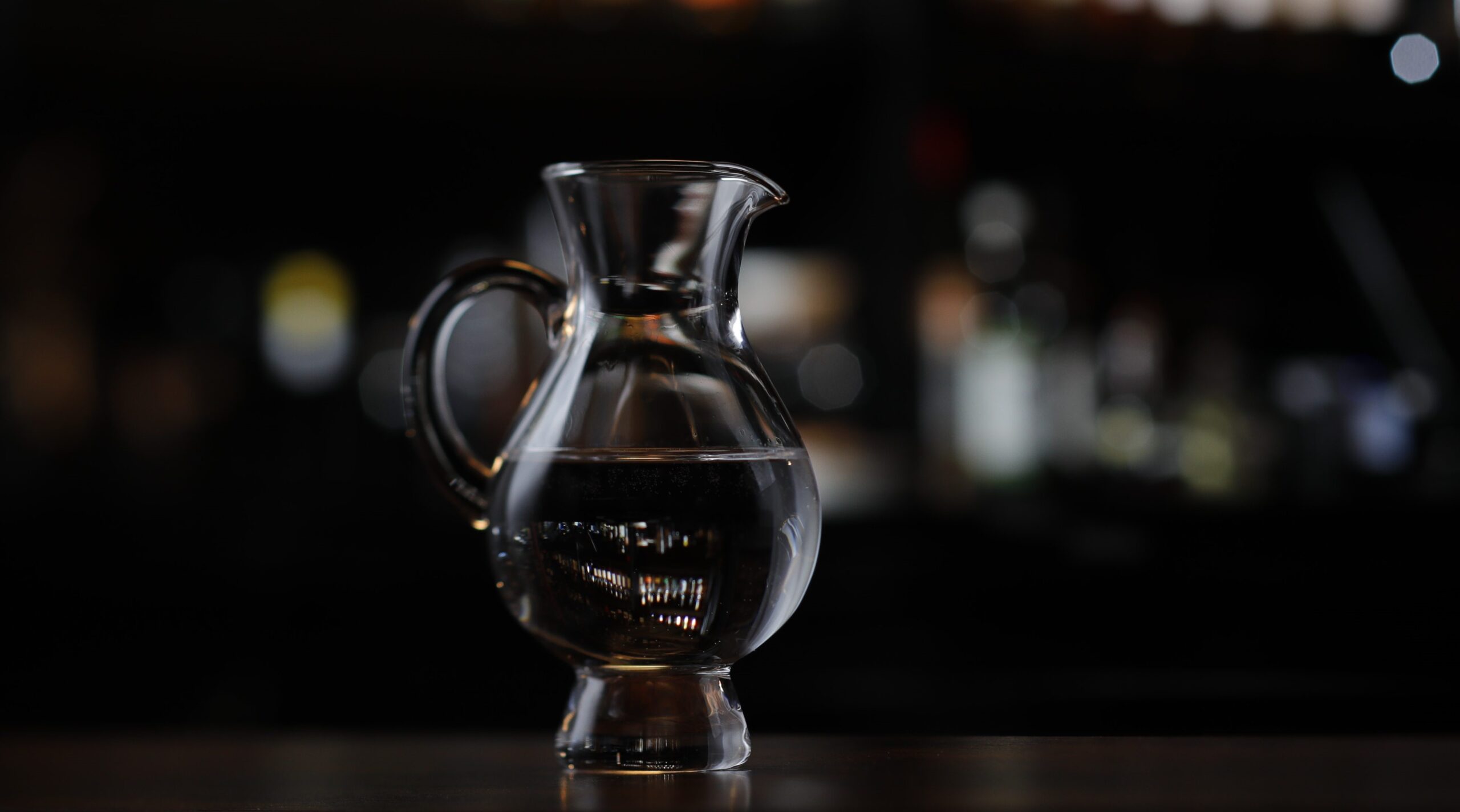Don’t destroy the moment – Use A Glencairn Glass
The Importance of the Right Glass
Imagine your customer’s favourite whisky, meticulously nurtured and cared for by its distillery for years, waiting to be savoured in every drop. There’s nothing more disappointing than it being served in a glass that doesn’t do the whisky the justice it deserves. Don’t destroy the moment by choosing the wrong glass. Choose the Glencairn Glass.
The type of glass you serve your whisky in plays a vital role in your customer fully appreciating the nose, colour, flavour, and quality of the dram. When serving a quality whisky, the go-to glass should always be the Glencairn Glass. Created and designed with guidance and expertise from some of the world’s most esteemed master distillers, this glass ensures every sip is a celebration of the whisky’s craftsmanship.
Honour The Moment
As a whisky enthusiast, you know that the glass you choose is as important as the whisky itself. Serving a premium whisky in the right glass, like the Glencairn Glass, respects both the spirit and the moment. With its thoughtful design and master distiller-approved features, this glass is the perfect vessel to ensure that every dram is experienced to its fullest potential.
By choosing the Glencairn Glass, you honour the craftsmanship of the distillery and elevate the experience when tasting whisky that has been nourished and taken years to produce.
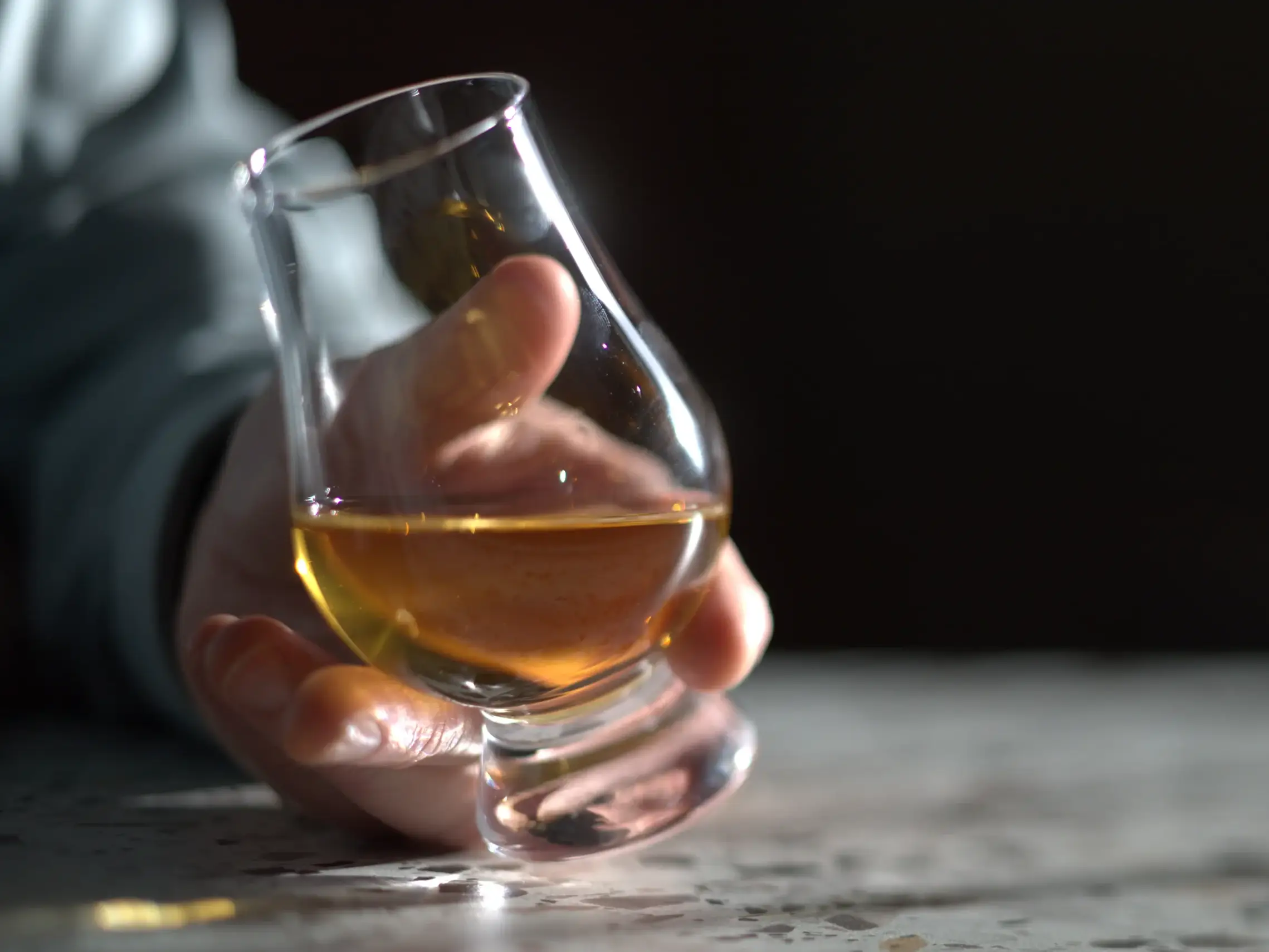

Beyond the Glencairn Glass
Beyond the classic Glencairn Glass, we offer a variety of options to suit every whisky enthusiast’s taste. Our collection includes cut Glencairns and coloured Glencairns, adding a touch of elegance and personalisation to your whisky experience. For those looking to make their glass truly unique, we offer customisation options to feature your brand or a special message for a loved one.
In addition to the iconic Glencairn Glass, our full range includes copitas for traditional tasting, mixer glasses for a perfect whisky cocktail, and gin goblets to elevate your gin and tonic experience. Whatever your drink of choice, our comprehensive Glencairn range ensures you have the perfect glass for every occasion.
Looking for A Gift For Father's Day?

Happy Father's Day 🥃
Father’s Day is just around the corner, and what better way to show your appreciation than with something special from Glencairn Glass?
To make it even better, we’re offering 15% off all items with the code fathersday15
Our range includes the full glencairn range, glencairn bundles and various gift options that spirit-loving dads will appreciate. Whether it’s a personalised glass, carefully selected bundles, or a handy travel kit, we’ve got something that will make your dad’s day.
Our glassware is designed to elevate the drinking experience.
The iconic Glencairn Glass, the tulip-shaped Copita, and the versatile Mixer Glass are all crafted to enhance the aromas and flavours of fine spirits and most importantly look good in your house, bar or distillery!
Are you looking to add a personalised touch this Father's Day?
For an added personal touch, you can easily customise the glass by engraving a meaningful date or message. Our innovative 3D Visualiser simplifies the process, allowing you to preview exactly how the engraving will appear before finalising your purchase.
It’s as straightforward as selecting your preferred font, typing your message, and using the 3D Visualiser to ensure it meets your expectations. This intuitive tool guarantees your customisation is as precise as you envision, making the gift truly distinctive and heartfelt.
Go ahead, and effortlessly add a personal touch to your Father’s Day present, knowing it will be treasured.
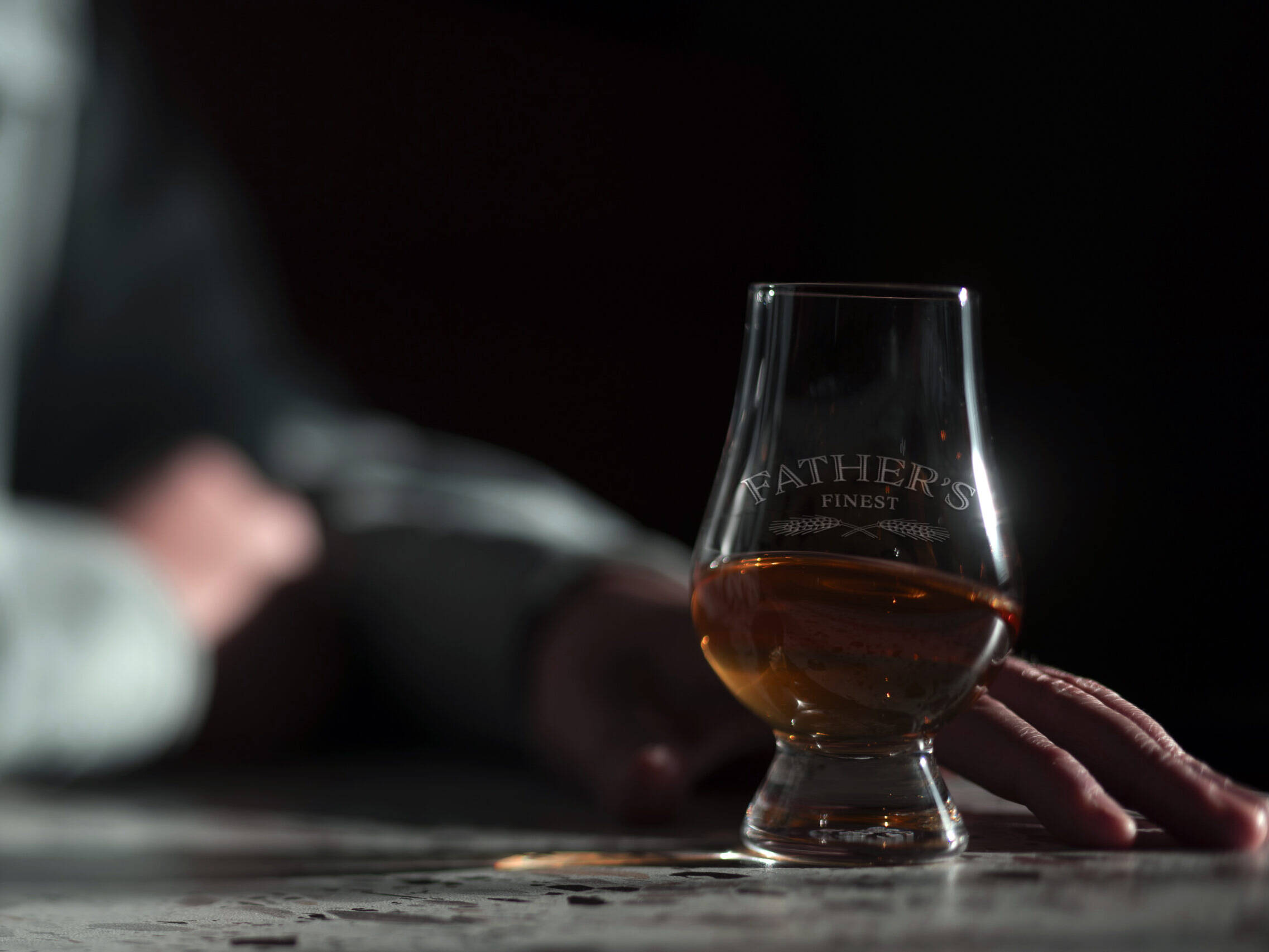

Are you searching for the perfect Father’s Day gift to elevate your dad's experience while cheering on his favourite team during the 2024 Euros?
With the 2024 Euros just around the corner, what better time to gift your dad the perfect whisky setup? Imagine enjoying the matches together, toasting each goal with a limited edition Euro 2024-designed Glencairn glass.
Choose from a selection of 6 unique designs, each embodying the spirit and humour of Scotland and England, or opt for the special blue and white or red and white gift sets of 2.
Raise a glass and celebrate the football festivities in style!
Introducing The Glencairn Water Jug and Pipette - Ideal Partners for Your Glencairn Glass
Introducing The Glencairn Water Jug and Pipette
The Ideal partners for your Glencairn Glass when you want to enhance your whisky experience with a touch of water.
What Is the Importance of Water in Whisky Tasting?
For many whisky enthusiasts, adding a touch of water is an important part of the tasting process. Water can help open up the whisky, releasing its complex aromas and flavours that might otherwise remain hidden.
It can soften the alcohol’s edge, especially in cask-strength whisky, making it easier to discern the nuanced notes crafted by the distiller. Understanding the significance of water in whisky drinking, Glencairn has created a range of accessories that ensure this process is as refined and enjoyable as possible.
Why Choose the Glencairn Pipette and Why Is It Important in Whisky Tasting?
The Glencairn Pipette is essential for whisky lovers because it allows you to add water precisely, drop by drop, which can open up the whisky’s complex aromas and flavours, enhancing your tasting experience.
Weighted at the top with a miniature Glencairn Glass, the pipette is not only functional but also ergonomically designed for comfortable handling. With its precisely engineered control aperture, nestled within a wide bulb at the upper end, the pipette allows for better regulation of the water added.
How Do the Water Jug and Pipette Complement Each Other?
Pairing up the Glencairn Water Jug, which also serves as the perfect holder for the Glencairn Pipette, with the Pipette creates a dynamic duo for enhancing your whisky experience. Whether you’re an avid whisky enthusiast or just starting to explore the world of spirits, these accessories bring a blend of control and sophistication to your enjoyment. Crafted with care, the Glencairn Water Jug adds its own touch of elegance while providing a convenient spot for your Pipette. Why not complete your collection of Glencairn accessories and elevate your whisky experience to new heights?
Introducing The Glencairn Copita - The Blenders Choice
Introducing The Glencairn Copita
Watch our new video featuring The Glencairn Gin Goblet, An essential tool in blending labs and distilleries worldwide.
Why is the Copita a go-to choice with master distillers and blending labs?
The Copita Glass is the go-to choice for master distillers and blending labs because of its specialized design tailored for whisky analysis and appreciation. Its elongated tulip shape, longer stem, and flared rim make it ideal for capturing and concentrating aromas, allowing professionals to discern the subtlest nuances of whisky. This glass facilitates easy inspection of the liquid’s colour and clarity, essential for evaluating whisky quality and consistency. Its crystal construction ensures clarity and purity, providing a clear view of the whisky’s characteristics.
Can you use the Copita with other spirits?
Absolutely! The Copita Glass isn’t limited to whisky; it’s a versatile choice for enjoying a variety of spirits. Whether it’s rum, tequila, brandy, or even gin, the Copita Glass can enhance the tasting experience across different types of spirits. Its shape and design, particularly the elongated tulip bowl and flared rim, are well-suited for capturing and concentrating aromas, which is crucial for appreciating the complexity of any spirit.
So, whether you’re exploring the rich flavours of a single-malt Scotch whisky or savoring the delicate notes of a premium tequila, the Copita Glass enhances the tasting experience, making it a versatile option for spirits beyond whisky. We have noticed that a lot of tequila tastings have now adopted the glass as their go-to choice for sipping on tequila and mescal. So the possibilities are endless on which this glass is not restricted to one spirit.
What does the future hold for The Glencairn Copita?
The future for The Glencairn Copita Glass looks promising as its popularity continues to grow among whisky enthusiasts, professionals, and even across other spirits like tequila and mezcal. With its versatile design and ability to enhance the tasting experience by capturing and concentrating aromas, the Copita Glass is likely to become even more widely adopted in both the whisky industry and beyond.
As the global interest in whisky and spirits education rises, The Glencairn Copita Glass is poised to play a significant role in tasting events worldwide, educational courses, and distillery tours. Its association with reputable distilleries, whisky influencers, and industry organisations further solidifies its position as a premier glassware choice for serious enthusiasts and professionals.
Introducing The Glencairn Gin Goblet - A Game Changer In The World of Gin Drinking
Introducing The Glencairn Gin Goblet
Watch our new video featuring The Glencairn Gin Goblet, a game-changer in the world of gin drinking.
Why make a gin glass?
Our decision to create a dedicated gin glass was driven by a passion for craftsmanship, a love for fine spirits, and a desire to enhance the drinking experience for gin enthusiasts worldwide.
As the creators of the Glencairn whisky glass, we have always been committed to excellence in design and functionality. Over the years, we’ve received countless requests from gin aficionados for a glass that would complement the unique characteristics of gin, much like the Glencairn whisky glass does for whisky.
Gin has a rich history and a wide range of flavors and is now bigger than ever in Scotland. It’s closely related to the whisky world, as many prominent Scottish whisky distilleries also produce gin. From traditional juniper-forward gins to modern botanical blends, gin offers a diverse spectrum of tastes. We aimed to create a glass that would accentuate the aromas and flavors of gin, allowing drinkers to fully appreciate its complexity and depth.
Where do you see the gin goblet now? how versatile is the goblet?
While the Glencairn Gin Goblet was specifically crafted with gin in mind, its versatility extends beyond just this spirit. The goblet’s design features, such as the lip designed for ease of drinking and the tapering mouth that captures aromas, make it well-suited for a variety of cocktails, including spritz-style drinks.
The growing popularity of spritz-style cocktails, which typically consist of a base spirit, soda water, and a flavorful addition such as liqueur or bitters, has led many to discover the versatility of the Glencairn Gin Goblet. Its elegant shape and crystal clarity enhance the presentation of these cocktails.
Furthermore, the Glencairn Gin Goblet’s stem, designed to keep the hand away from the bowl, helps maintain the temperature of the drink, whether it’s a refreshing gin and tonic or a sparkling spritz. This makes it an ideal vessel for enjoying a wide range of cocktails, from classic gin-based drinks to modern twists on traditional favourites.
What does the future hold for the Glencairn Gin Goblet?
The future for the Glencairn Gin Goblet is bright and promising, mirroring the trajectory of its predecessor, the Glencairn whisky glass. Just as the Glencairn whisky glass has become a staple in whisky bars, festivals, and the collections of whisky enthusiasts worldwide, we envision the Glencairn Gin Goblet following a similar path in the world of gin.
In recent years, we’ve observed an increasing number of gin distilleries and awards embracing the Glencairn Gin Goblet as their standard glassware. Most notably, the Gin Guide Awards have chosen the Glencairn Gin Goblet as their main sponsorship glass, further solidifying its place in the world of gin. Can discover more here.
As more and more gin enthusiasts discover the quality and versatility of the Glencairn Gin Goblet, we believe its popularity will continue to grow. Whether enjoyed at home, in a bar, or at a gin event, the Glencairn Gin Goblet promises to elevate the gin-drinking experience for years to come.
Introducing The Glencairn Mixer - A Glass Made for More Than Just Whisky
Introducing The Glencairn Mixer
Watch our new video featuring The Glencairn Mixer, a versatile crystal glass perfect for enjoying a variety of spirits.
Why was The Glencairn Mixer created?
The Glencairn Mixer is an adaptation of the original Glencairn Glass, designed to highlight premium Canadian whiskies while allowing space for mixers and ice. Over time, it has become a popular choice not only for whiskey but also for gin enthusiasts and cocktail fans.
Are you a whisky enthusiast who loves experimenting with cocktails? Or perhaps you're a gin drinker in search of the perfect glass?
While the Glencairn Mixer Glass was originally created for Canadian whisky enthusiasts, its versatility extends beyond whisky. For example, with gin, this glass is perfect for showcasing the botanical aromas and flavours of your favourite gin cocktails.
Whether you’re mixing up a classic Negroni, a refreshing Gin and Tonic, or experimenting with your own creations, the Glencairn Mixer Glass enhances the visual appeal and taste of your cocktails. Its size and shape make it perfect for Negronis, whisky sours, or spritz-based cocktails.
What makes the glencairn mixer glass so special?
The Glencairn Mixer Glass stands out for several key features. Its lip design, slightly flared and rounded, is engineered for smooth sipping, ensuring that every drop of whisky or cocktail hits your palate just right. Additionally, the tapering mouth of the glass plays a crucial role in capturing and concentrating the drink’s aromas, allowing for a fuller appreciation of its complex flavours.
The glass’s wide bowl sets it apart from traditional whisky glasses and is actually an adaptation of the classic Glencairn glass. This design provides ample space for ice cubes or mixers. This versatility means you can enjoy your drink neat, on the rocks, or with a mixer, all without compromising on flavour or presentation. Crafted with ergonomics in mind, the Glencairn Mixer Glass feels perfectly weighted and balanced in your hand, ensuring a comfortable and enjoyable drinking experience, whether you’re leisurely sipping whisky or shaking up a cocktail.
Additionally, the Glencairn Mixer is available in cut crystal, offering an ultra-premium version of the original design.
Introducing The Glencairn Glass - How to appreciate your whisky.
Introducing The Glencairn Glass
The World’s Favourite Whisky Glass
How does The Glencairn Glass help you appreciate your whisky better?
The Glencairn Glass has always been known and celebrated as the official glass for Whisky but it isn’t just a vessel for holding whisky. It is a well-crafted tool designed to enhance every aspect of the whisky-drinking experience.
Glencairn Glass was born out of a collaboration between whisky experts, master blenders, and master distillers in the early 2000s
- Firstly, its wide crystal bowl allows you to fully appreciate the whisky’s color. This feature, inspired by traditional whisky tumblers, connects you to centuries of whisky culture where the colour describes the flavour.
- Moving on to the nose, the Glencairn Glass’s tapering mouth captures and intensifies the aroma, directing it straight to your senses. This enhances the olfactory experience, allowing you to detect subtle notes and complexities that might otherwise go unnoticed.
- The unique patented shape of the glass further enhances the appreciation by allowing you to admire the whisky’s texture, viscosity, and legs. This aspect of the design, influenced by centuries of whisky craftsmanship, adds depth to the tasting experience, engaging both sight and touch.
Over the years, the Glencairn Glass has become more than just a piece of glassware—it's a symbol of whisky culture and tradition. Its adoption as the official glass for whisky by distilleries, tasting events, and enthusiasts alike speaks volumes about its significance
- Moreover, the glass’s comfortable grip ensures that you can hold it with ease, allowing the whisky to develop over time as it warms in your hand.
- The Glencairn Glass’s versatility is key to its role in whisky appreciation. Whether you prefer your whisky neat or with a splash of water, the glass accommodates both, ensuring that you can enjoy the spirit exactly as you like it.
- In summary, the Glencairn Glass helps you appreciate your whisky better by providing a sensory journey that engages sight, smell, touch, and taste. Its design, rooted in history and expertise, enhances every aspect of the whisky-drinking experience, allowing you to savour the magic of whisky.
Happy Earth Day with Glencairn Glass
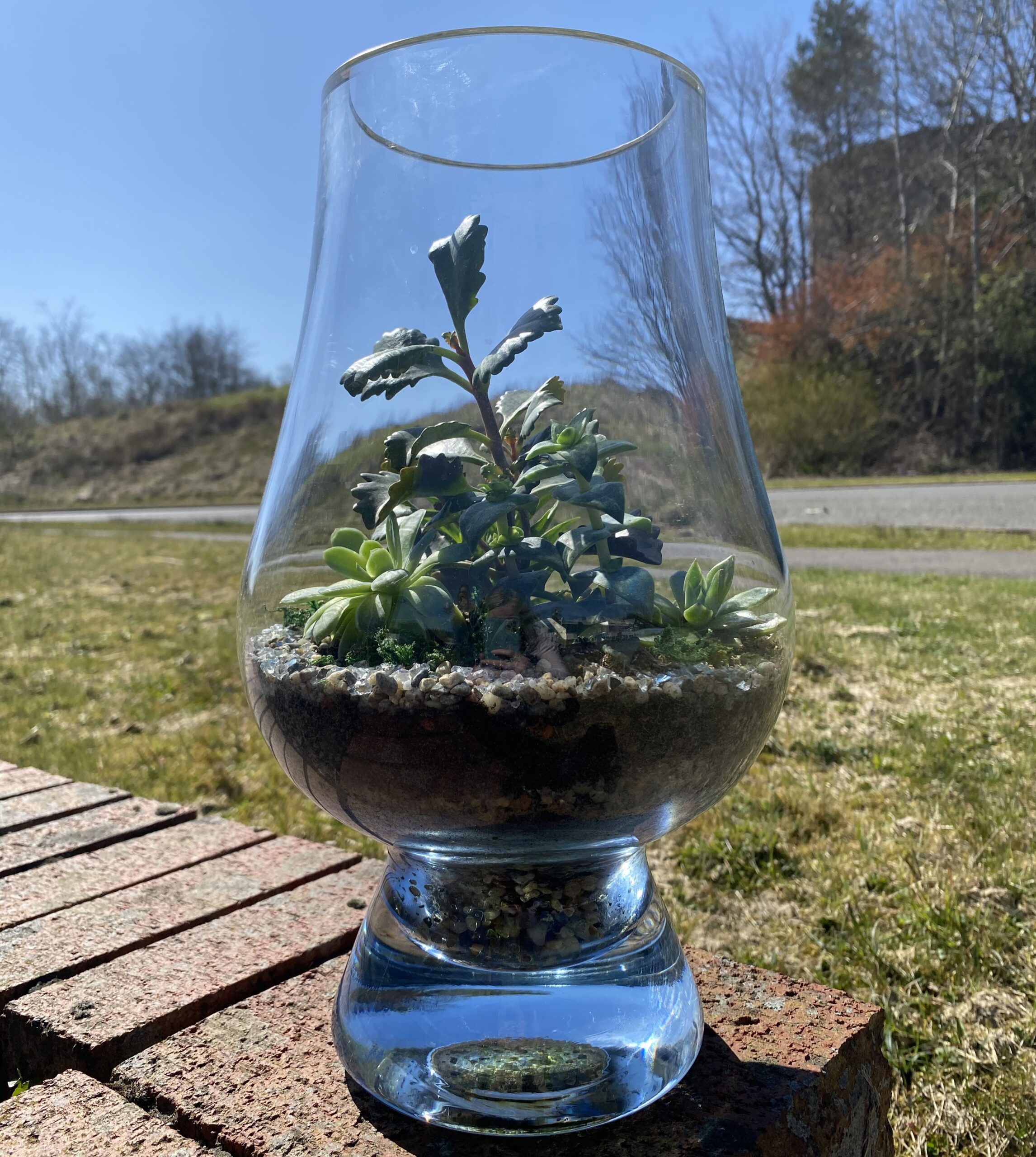
Happy Earth Day 🌎
For Glencairn, events like Earth Day are hugely important as they mark a step in the right direction. We are very much aware of the need to pay attention to the environmental impact of everything we do, not just for ourselves but for the planet. We take a sustainable approach from the bottom up and ensure that our suppliers and colleagues follow in the same footsteps.
Paul Davidson our Managing Director says
,‘As a socially and environmentally responsible family business, we are strongly influenced by the families’ children’s views on the environment, as they are the future of both our business and our planet. By shaping our policies and practices around what they believe, we are confident of building a far more sustainable future and, although we don’t have all the answers yet, we’re doing our best to find them.’
And James Crilly our Operations Director points out
“Our ambition is to be 100% reliable on electrical energy over the next five – ten years, whilst looking to increasingly re-use and reduce the energy we’re using in recycling. As a business that makes premium glassware designed to last a lifetime, we believe this is fully achievable and must be at the heart of what we do.”
On World Earth Day, we are proud to highlight our efforts towards sustainability and reducing our environmental footprint. Here's how we are making a difference:
- Installed an extensive Solar PV and energy storage system, generating more energy than required for company operations, leading to complete energy independence. Excess electricity is sent back to the grid for local usage.
- Reduced gas usage by 60% with the new solar system. Over the next decade, we aim to eliminate gas energy entirely.
- Replaced the factory floor’s gas heating system with a new air conditioning system, further reducing gas usage by 60%, with ongoing reductions in the next 12 months.


These initiatives reflect our dedication to sustainability and our commitment to preserving the environment for future generations.
- Installed electric car charging points in the company car park, promoting the use of fully electric or hybrid vehicles.
- Implemented recycling and packaging initiatives in our day-to-day office functions, aiming to reuse and reduce instead of just recycling. We are committed to eliminating plastic packaging within the next five years.
- Collaborating with Viridor for cardboard and paper recycling, with plans to install an industrial shredding machine to reuse cardboard waste for packaging purposes, making the business self-sufficient in this area.
Spring Cocktail Glassware with Glencairn

Spring Cocktail Glassware by Glencairn Glass
As the days lengthen, so do the drinks at Glencairn Crystal. It’s gradually warming up here in East Kilbride (Scotland), and by ‘gradually,’ we mean it. The snow and ice have only just begun to retreat, making way for the gentle embrace of sunshine.
While we have gained worldwide recognition for our whisky glasses, you might be surprised to learn that we also provide a mixer glass and gin goblet, ideal for concocting delightful spring cocktails.
The Glencairn Goblet - The Perfect Spritz Glassware
This finely crafted crystal goblet is ideal for those who enjoy a Gin & Tonic or a fruit-filled gin cocktail, making it a must-have for any springtime drinks collection. Its spacious bowl offers plenty of room for ice, garnishes, and a generous serving of your preferred spirits.
Its adaptable design also makes it perfect for spritz-style cocktails like the classic Aperol Spritz. The wide rim of the goblet accommodates large ice cubes typically used in such drinks and provides ample space for bubbles and the infusion of aromatic citrus notes—a vital component of any spritz-style cocktail.


The Glencairn Mixer - The Perfect Cocktail Glass
Originally designed for the Canadian whisky industry who like their drinks on the rocks, the Glencairn Mixer has evolved into Glencairn’s most versatile glass yet. Perfect for spring-inspired spritz cocktails, negronis, or sours, it’s the go-to choice for mixing up refreshing beverages this season. Just take a cue from Onthesuaceagain , who whipped up a delightful spring negroni using this very glass. So, whether you’re enjoying drinks in the garden or hosting a cozy gathering indoors, the Glencairn Mixer is your trusted companion for all your springtime libations.
You can find the link to Inka’s special spring negroni here or you can follow the recipe bellow:
25ml The Botanist, 25 Mulassano Vermouth, 25ml Select Aperitivo, 10ml Strega, 22.5ml Blood orange, 7.5ml lemon, egg white
Glencairn Glass Celebrates International Whiskey Day
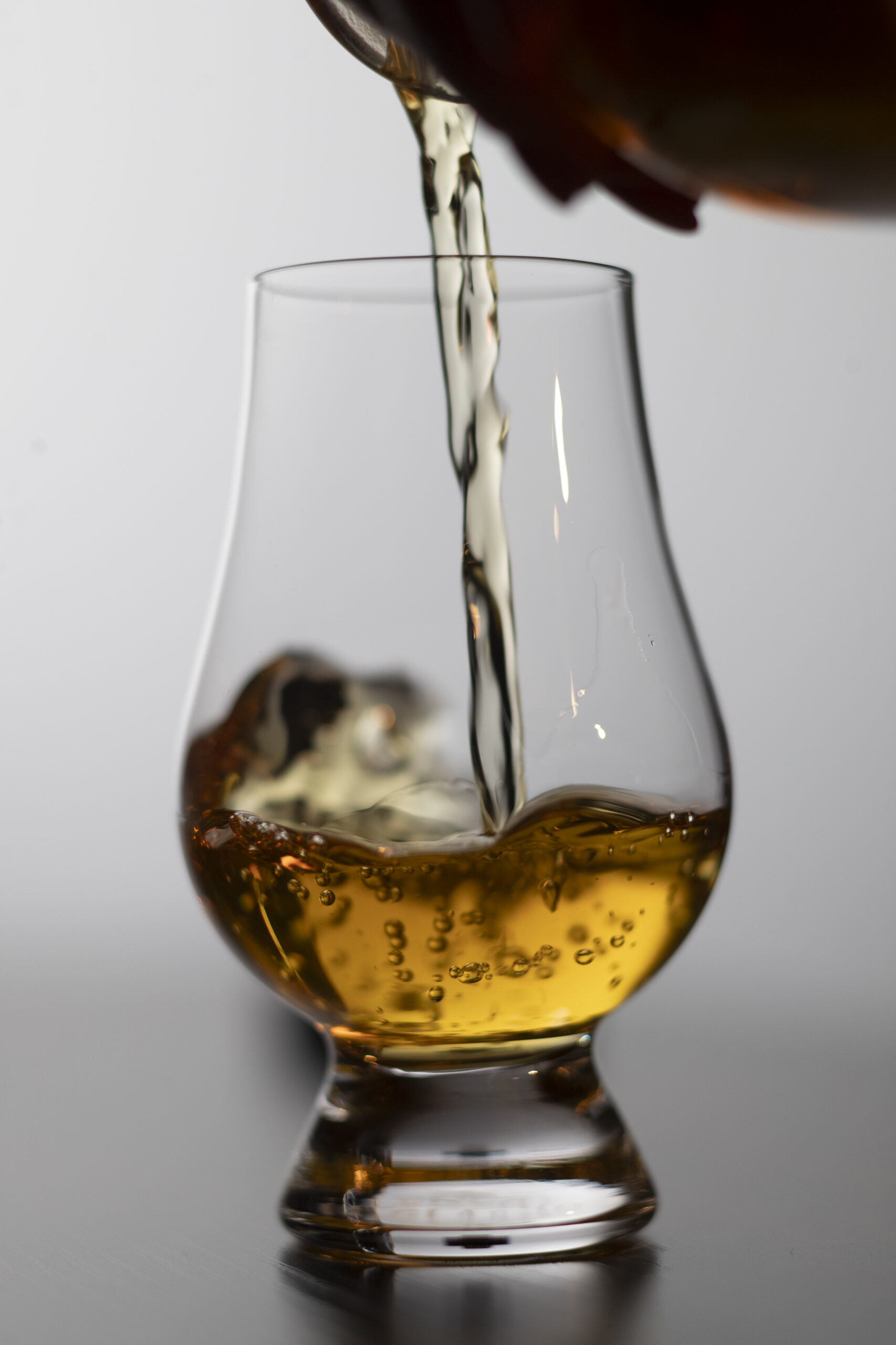
The Glencairn Glass - The Offical Glass of Whisky
International Whisky Day celebrates not just the spirit itself but also the culture and craftsmanship surrounding it. The Glencairn Glass, synonymous with whisky appreciation, characterises centuries-long efforts to elevate the whisky-drinking experience. As we mark International Whisky Day, we recognise the glass’s role in revolutionising how enthusiasts savour their drams, honouring both whisky’s heritage and the dedication behind its evolution.
The Glencairn glass is a testament to whisky enjoyment. Before its creation, whisky lacked a dedicated vessel for appreciation. Raymond Davidson, founder of Glencairn Crystal, addressed this gap by designing a glass tailored for whisky drinkers, collaborating with Master Blenders to perfect its form and function. Since its launch in 2001, the Glencairn Glass has earned global acclaim, becoming a staple at whisky festivals and bars worldwide, selling over 5 million units annually.
Glencairn Copita - The Blenders Choice
At Glencairn, we respect tradition alongside innovation. The Glencairn Copita, favoured by Master Blenders, is essential for nosing newly concocted spirits in distilleries. Its tulip-shaped bowl enables swirling before nosing, while the small opening concentrates the nose. As we celebrate International Whisky Day, we honour the Glencairn Copita’s role in whisky tradition and craftsmanship.


The Glencairn Mixer - The Versatile Whisky Glass
Whisky exploration takes many forms, with preferences ranging from neat to mixed. In collaboration with the Liquor Control Board of Ontario and the Canadian whisky industry, we crafted the Glencairn Mixer Glass, originally designed to showcase premium Canadian whiskies while accommodating mixers and ice. Over time, this versatile glass has transcended its original purpose, becoming a staple for various spirits and cocktails. Its evolution reflects the adaptability and influence of whisky culture, extending its impact beyond the realm of whisky itself. As we celebrate International Whisky Day, we recognise the enduring legacy of whisky culture, inspiring innovation and versatility in the world of spirits and cocktails.


